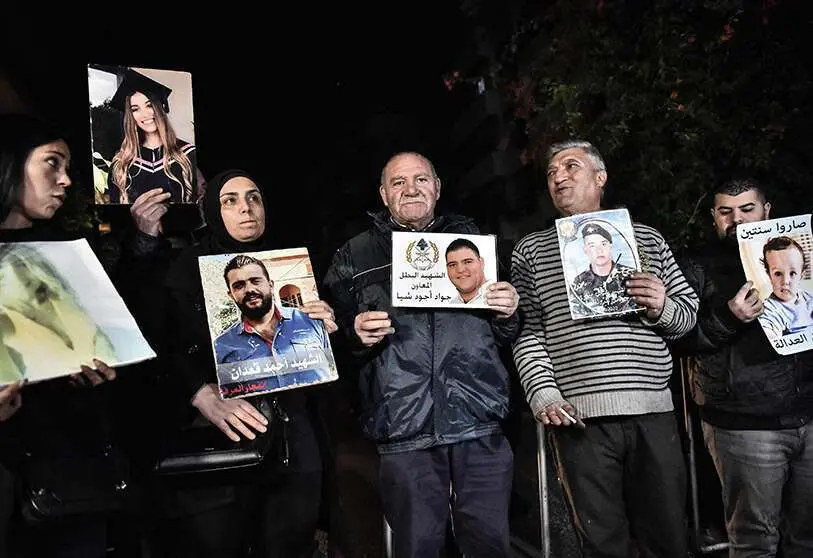Lebanon perpetuates its crisis: judicial blow and currency collapse in less than a week

The crisis in Lebanon deepens with each passing day. In addition to the power vacuum following the end of Michel Aoun's mandate and the economic and social crisis, there is a new episode at the judicial level. The investigation into the Beirut explosion that killed 200 people and injured 6,500 in 2020 has suffered a new setback. Lebanon's Prosecutor General Ghassan Oueidat has released all those detained in the case, a decision applauded by Hezbollah.
The prosecutor's decision has infuriated the families of the blast victims who have seen this investigation obstructed since the day it began. The judicial ups and downs - with significant political overtones - have generated a lot of public irritation and calls for accountability. The judge in charge of the investigation, Tarek Bitar, recently resumed the process that had been suspended for more than a year. The decision to prosecute influential figures in Lebanese society, including Oueidat himself, did not sit well with the institutions, leading the judiciary to publicly criticise the judge.

In return, the public prosecutor has ordered the release of all those arrested in the case, 17 in total. Oueidat's notification states that "we have decided to release, without exception, all those arrested in the case of the Beirut port explosion and prohibit them from travelling, placing them at the disposal of the Judicial Council in case it meets and informing whoever is necessary". This news was applauded by Hezbollah representative Ibrahim al-Musawi, who described the decision as "a step on the right path to restore confidence in judges after it was demolished by some members of the judiciary".

Al-Musawi's words are aimed directly at Bitar, who has already been accused of bias and politicisation following his attempt to question some of the party's members. The judge's battle, not only with Hezbollah, but with the entire Lebanese parliament has hindered the investigation, which, two and a half years later, is not moving forward. Tarek Bitar asked the former parliament to lift the immunity of former ministers affiliated with Hezbollah "in preparation for the prosecution and initiation of proceedings against them" for the probable "crime of attempted murder and negligence".
According to the judge, by being aware of the existence of the ammonium nitrate and failing to take measures to prevent a possible explosion - which eventually happened - he could be guilty of these offences. However, parliament refused to lift the immunity of the former ministers and they could not be questioned. Nor could the security officers be questioned due to the refusal of the Ministry of Interior. Moreover, state security forces refused to execute the arrest warrants, a further chapter in what observers describe as the culture of "impunity" to which Lebanon has historically been linked.

Repeated political meddling in the judicial process has long worn thin the patience of the victims who are protesting in the streets demanding a fair and transparent process. But everything seems to indicate that their demands are closer to a utopia than to a near future. The release of the detainees reflects the fact that the intention to find out who is responsible is non-existent and that the investigation, despite being resumed after a year's suspension, will continue to be hindered as it was before it was paralysed. This deepens a crisis that follows the economic and social crisis the country is going through.
Since the financial crisis began in Lebanon, the Lebanese pound has lost 97% of its value, with a sharp fall in the last week. In less than seven days, the currency has lost 13% of its value, reaching an exchange rate of 57,000 pounds to the dollar on Wednesday morning. This further fall has sparked fresh protests from a society that has been suffering since the country began to experience a shortage of dollars. As reported by the Lebanese National News Agency, protesters blocked several roads across the country.

More than 80% of the Lebanese population is below the poverty line, a figure worsened significantly by the exponential rise in inflation over the past year. In 2022 alone, inflation rose by 171%, one of the highest in four decades, according to Central Administration of Statistics figures released this month. To this must be added the new fuel prices announced by the Ministry of Energy, causing a massive closure of petrol stations and long queues at the few that did open normally.








